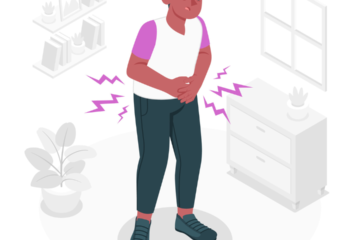
Urology and Men’s Health Week, observed from June 12th to June 18th, is a dedicated time to raise awareness about the importance of men’s health and shed light on urological conditions that affect millions of men worldwide. This week serves as a reminder to prioritize urological health and encourages men to take proactive steps towards overall well-being. In this comprehensive blog, we will explore various aspects of urology and men’s health, including common conditions, preventive measures, treatment options, and lifestyle choices that contribute to a healthy urological system.
Understanding Urology
Urology is a specialized branch of medicine that focuses on diagnosing and treating conditions related to the male reproductive system and the urinary tract. Urologists are medical professionals who possess extensive knowledge and expertise in addressing a wide range of urological concerns. They play a crucial role in the early detection, diagnosis, and management of conditions that affect men’s health.
- The Role of Urologists
A urologist is a medical specialist who focuses on diagnosing and treating conditions related to the male reproductive system and urinary tract. They address a wide range of issues, including urinary incontinence, kidney stones, erectile dysfunction, prostate problems, and urinary tract infections. Urologists perform surgeries, prescribe medications, and provide guidance on preventive measures to promote overall urological health.
Dr. Sumit Sharma is an experienced urologist, andrologist, and kidney transplant surgeon with over 20 years of clinical experience. He is the founder of the Department of Urology at multiple hospitals in Gurgaon and has established successful kidney transplant programs across the city.
- Diagnostic Tools and Treatments
Urologists utilize various diagnostic tools to evaluate urological conditions, such as physical examinations, medical history assessments, laboratory tests, imaging studies, and specialized procedures. Treatment options may include medications, lifestyle modifications, minimally invasive procedures, and, in some cases, surgical interventions.
Common Urological Conditions
Understanding common urological conditions is crucial for men to recognize potential symptoms, seek early intervention, and improve their quality of life. Here are some prevalent urological conditions that men may encounter:
- Prostate Health
The prostate gland, an essential part of the male reproductive system, can be affected by conditions such as:
- Prostatitis: Inflammation of the prostate, often caused by infection or inflammation.
- Benign Prostatic Hyperplasia (BPH): Non-cancerous enlargement of the prostate gland, which can lead to urinary symptoms.
- Prostate Cancer: The second most common cancer in men, with various treatment options available for different stages and grades.
- Sexual Health
Sexual health concerns can significantly impact a man’s well-being and relationships. Some common conditions include:
- Erectile Dysfunction (ED): The inability to achieve or maintain an erection sufficient for sexual activity.
- Peyronie’s Disease: The development of fibrous plaques in the penis, causing curvature and potentially painful erections.
- Premature Ejaculation: The inability to control or delay ejaculation, leading to unsatisfactory sexual experiences.
- Low Testosterone (Hypogonadism): Insufficient production of testosterone, resulting in various symptoms such as decreased libido, fatigue, and mood changes.
- Urinary Health
Several urological conditions affect the urinary function and can cause discomfort or inconvenience:
- Urinary Tract Infections (UTIs): Infections that occur in the urinary tract, commonly affecting the bladder or urethra.
- Kidney Stones: Hard mineral and salt deposits that form in the kidneys, often causing severe pain and urinary complications.
- Urinary Incontinence: The involuntary leakage of urine, which can be caused by various factors such as weakened pelvic floor muscles or nerve damage.
Promoting Urological Health
Maintaining urological health is crucial for overall well-being and quality of life. Here are some preventive measures and lifestyle choices that can help promote urological health:
- Healthy Diet and Hydration
A well-balanced diet and proper hydration play a significant role in urological health. Incorporate the following into your diet:
- Fruits and Vegetables: Rich in vitamins, minerals, and antioxidants that support overall health.
- Whole Grains: Provide fibre and nutrients that promote digestive health.
- Lean Proteins: Include lean meats, fish, legumes, and tofu for essential amino acids.
- Hydration: Drink an adequate amount of water daily to maintain proper urinary function and reduce the risk of kidney stones.
- Regular Exercise and Weight Management
Engaging in regular physical activity and maintaining a healthy weight offer numerous benefits for urological health:
- Exercise: Aim for at least 150 minutes of moderate-intensity aerobic activity or 75 minutes of vigorous activity per week. Incorporate strength training exercises to improve overall fitness.
- Weight Management: Maintain a healthy weight to reduce the risk of urological conditions such as BPH, ED, and urinary incontinence.
- Safe Sexual Practices and Regular Check-ups
Taking proactive steps to ensure sexual health is essential for urological well-being:
- Safe Sexual Practices: Practice safe sex by using barrier methods such as condoms to reduce the risk of sexually transmitted infections.
- Regular Check-ups: Schedule regular visits with a healthcare professional to discuss any concerns, undergo screenings, and receive appropriate vaccinations.
- Avoiding Tobacco and Limiting Alcohol Consumption
Smoking and excessive alcohol consumption can negatively impact urological health:
- Tobacco: Quit smoking or avoid tobacco use altogether, as it increases the risk of urological conditions, including bladder and kidney cancer.
- Alcohol: Limit alcohol intake, as excessive consumption can lead to sexual dysfunction and other urological complications.
Conclusion
Urology and Men’s Health Week serves as a reminder for men to prioritize their urological well-being. By understanding common urological conditions, practising preventive measures, and making healthy lifestyle choices, men can take proactive steps towards maintaining good urological health. It is important to seek timely medical attention if any symptoms or concerns arise. Remember, regular check-ups with a urologist and open communication about urological health contribute to overall wellness and a higher quality of life. Let us embrace this week as an opportunity to raise awareness, initiate conversations, and empower men to prioritize their urological health.
Dr. Sumit Sharma is an experienced urologist, andrologist, and kidney transplant surgeon with over 20 years of clinical experience. He is the founder of the Department of Urology at multiple hospitals in Gurgaon and has established successful kidney transplant programs across the city.
Here are some frequently asked questions about Urology and Men’s Health:
Q. What lifestyle changes can help promote urological health?
Several lifestyle choices contribute to urological health. These include maintaining a balanced diet, staying hydrated, engaging in regular exercise, avoiding tobacco use, limiting alcohol consumption, practising safe sexual behaviours, managing stress levels, and maintaining a healthy weight. These lifestyle changes can help reduce the risk of urological conditions and promote overall well-being.
Q. Who is the best Urologist in Gurgaon?
Dr. Sumit Sharma is an experienced urologist, andrologist, and kidney transplant surgeon with over 20 years of clinical experience. He is the founder of the Department of Urology at multiple hospitals in Gurgaon and has established successful kidney transplant programs across the city.
Q. What are the symptoms and treatment options for urinary incontinence?
Urinary incontinence refers to the unintentional loss of urine. It can occur due to various factors, including weak pelvic floor muscles, nerve damage, prostate problems, or certain medical conditions. Symptoms may include leakage during physical activity, coughing, or sneezing (stress incontinence), frequent urination, or an urgent need to urinate (urge incontinence). Treatment options may include pelvic floor exercises (Kegel exercises), bladder training, medications, or surgical interventions, depending on the underlying cause.



